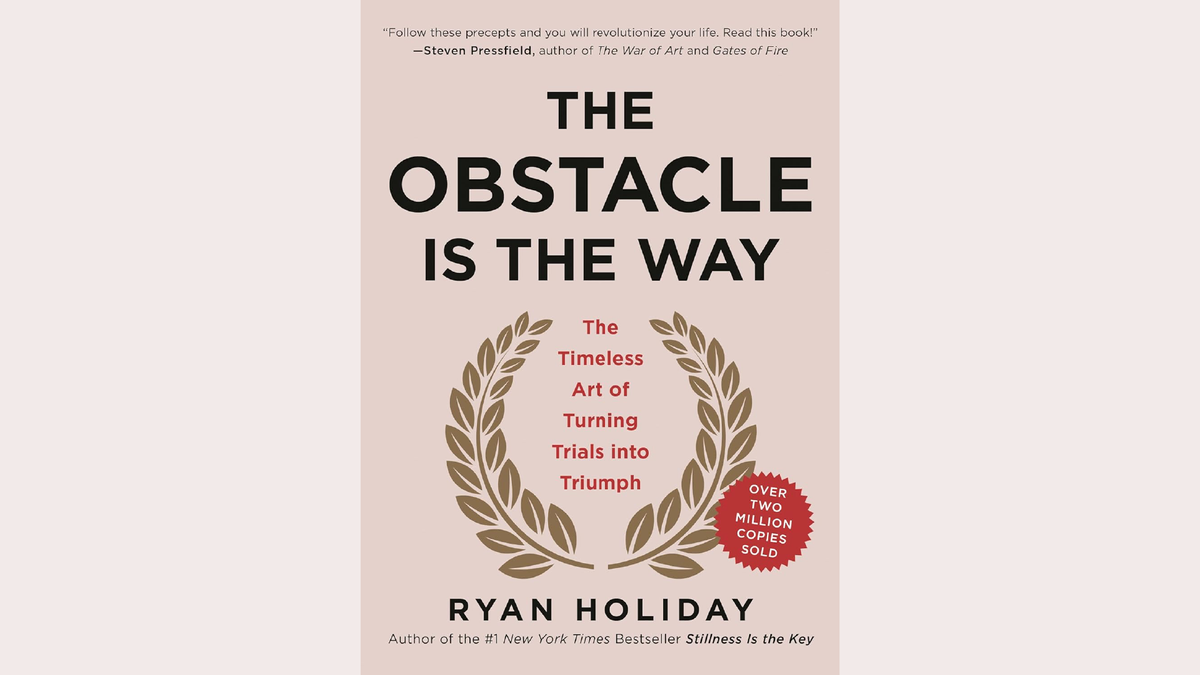12 Best Lessons Of The Upgrader's Journey
Embark on a transformative journey with carefully curated books inspired by Joseph Campbell's Hero's Journey. From establishing your foundation to sharing your growth, each stage is guided by insightful reads and inspiring quotes. Start your adventure of personal development today.

Embarking on a journey of self-improvement and continuous personal growth is an admirable pursuit that mirrors the epic adventure depicted in Joseph Campbell's Hero's Journey. For those committed to this path, we've curated a list of books to guide you through each stage of your "Upgrader's Journey." Each book has been carefully selected to resonate with the challenges and triumphs of the specific phases of your growth journey, complemented by inspiring quotes from the authors.
1. The Ordinary World: Establish Your Foundation
In this initial stage, reflect on your life as it currently stands. Understand the routines, mindsets, and behaviors that define your ordinary world. Recognizing these elements is crucial as it sets the stage for identifying the personal or professional growth you aspire to achieve.
- "Atomic Habits" by James Clear - Tiny changes can yield remarkable results.
- "Mindset: The New Psychology of Success" by Carol S. Dweck - Embrace challenges and continuous learning.
Practical Tip: Start a daily journal to track your habits, emotions, and progress. This self-reflection will help you identify the aspects of your life you're most eager to improve.
"You do not rise to the level of your goals. You fall to the level of your systems." James Clear.
2. The Call to Adventure: Embrace New Challenges
Life presents various growth opportunities, often in the guise of challenges or changes that push you out of your comfort zone. This step is about recognizing these opportunities and deciding to pursue them actively, thus embarking on your transformation journey.
- "Designing Your Life" by Bill Burnett and Dave Evans - Build a fulfilling life using design thinking.
- "The Power of Now" by Eckhart Tolle - Focus on living fully in the present.
Practical Tip: Set specific, measurable goals for your personal growth. Use these goals to guide your decisions and actions as you embrace new challenges.
"Realize deeply that the present moment is all you have. Make the NOW the primary focus of your life." Eckhart Tolle.
3. Refusal of the Call: Overcome Hesitation
After the initial excitement of a new challenge, doubts and hesitations often arise. This step involves confronting these feelings, understanding their roots, and learning to manage them effectively. It's a critical phase where you decide to move forward despite fears or obstacles.
- "Emotional Intelligence" by Daniel Goleman - Understand and manage your emotions effectively.
- "Option B" by Sheryl Sandberg and Adam Grant - Build resilience and thrive after setbacks.
Practical Tip: Practice mindfulness techniques to manage stress and anxiety. This can help you overcome initial hesitations and maintain clarity in your decision-making.
"Emotional self-control—delaying gratification and stifling impulsiveness—underlies accomplishment of every sort." Daniel Goleman

4. Meeting with the Mentor: Gain Wisdom and Guidance
No hero's journey is complete without the guidance of a mentor. In this phase, you seek advice, knowledge, and wisdom from those who have walked the path before you. Whether through books, relationships, or other resources, this guidance is crucial to successfully navigating the journey ahead.
- "How to Win Friends and Influence People" by Dale Carnegie - Improve your relationships and influence.
- "Nonviolent Communication" by Marshall B. Rosenberg - Enhance communication and foster empathy.
Practical Tip: Actively seek out mentors or communities online or offline that align with your growth aspirations. Engage regularly, and don’t hesitate to ask for advice.
"You can make more friends in two months by becoming interested in other people than you can in two years by trying to get other people interested in you." Dale Carnegie.
5. Crossing the Threshold: Commit to Change
This pivotal step marks your total commitment to the journey. It involves taking definitive actions that set you on the path of transformation. This commitment often means leaving behind old habits or mindsets and stepping into a new, uncertain world with determination.
- "Deep Work" by Cal Newport - Cultivate focus and minimize distractions.
- "The 7 Habits of Highly Effective People" by Stephen R. Covey - Adopt a principle-centered approach to effectiveness.
Practical Tip: Break your main goal into smaller, manageable tasks. Start with a tiny, actionable step daily to build momentum without feeling overwhelmed.
"The ability to perform deep work is becoming increasingly rare at exactly the same time it is becoming increasingly valuable in our economy." Cal Newport.
6. Tests, Allies, and Enemies: Strengthen Skills and Build Networks
As you progress, you'll encounter challenges that test your new skills, forge valuable relationships with allies, and recognize adversaries, whether internal doubts or external criticism. This stage is about overcoming these tests and strengthening your support network.
- "Peak" by Anders Ericsson and Robert Pool - Master expertise through deliberate practice.
- "The First 20 Hours" by Josh Kaufman - Learn new skills efficiently.
Practical Tip: Identify your support system and inform them of your goals and progress. Sharing your journey can help you find allies and gain additional support.
"The right sort of practice carried out over a sufficient period of time leads to improvement. Nothing else." Anders Ericsson
7. Approach to the Inmost Cave: Confront Core Challenges
Approaching the innermost cave involves delving into the deepest part of your journey and facing your core challenges or fears. This is often where you confront what you must change about yourself or your life.
- "Why We Sleep" by Matthew Walker - Understand the critical role of sleep in well-being.
- "The Blue Zones" by Dan Buettner - Learn longevity lessons from the world's longest-lived people.
Practical Tip: Schedule regular check-ins with yourself to assess your progress toward your core challenges. Adjust your strategies as needed to ensure you stay on track.
"The best bridge between despair and hope is a good night’s sleep." Matthew Walker
8. The Ordeal: Face and Overcome Major Challenges
The ordeal is the climax of the journey, where you face the most significant challenge yet. This is often a critical turning point where significant personal growth occurs through overcoming a major obstacle or crisis.
- "Man’s Search for Meaning" by Viktor E. Frankl - Find purpose in suffering.
- "The Total Money Makeover" by Dave Ramsey - Achieve financial health and independence.
Practical Tip: When faced with a significant challenge, approach it with a problem-solving mindset. Break the problem down into smaller parts and tackle each one systematically.
"When we are no longer able to change a situation, we are challenged to change ourselves." Viktor E. Frankl.
9. Reward: Reap the Benefits
After facing and overcoming the ordeal, you attain new wisdom, skills, or personal growth. This stage is about recognizing and celebrating these achievements, understanding their value, and using them to set even higher goals.
- "Drive" by Daniel H. Pink - Understand what truly motivates us.
- "Grit" by Angela Duckworth - Embrace the power of passion and perseverance.
Practical Tip: Celebrate your victories, no matter how small. Recognizing your achievements can boost your confidence and motivate you to continue your journey.
"Enthusiasm is common. Endurance is rare." Angela Duckworth

10. The Road Back: Integrate and Apply New Learning
Returning from the ordeal, you integrate the new knowledge and skills gained into your everyday life. This stage is about applying what you've learned to improve your life and positively impact those around you.
- "Essentialism: The Disciplined Pursuit of Less" by Greg McKeown advocates for a systematic discipline that focuses on what is essential and eliminates what is not.
- "The Obstacle Is the Way: The Timeless Art of Turning Trials into Triumph" by Ryan Holiday - Offers strategies for dealing with obstacles and turning them into advantages.
Practical Tip: Apply the insights you’ve gained to everyday situations. For instance, use improved communication skills in personal and professional interactions to test and refine your abilities.
"If you don’t prioritize your life, someone else will." Greg McKeown
11. Resurrection: Prove Your Transformation
- "Daring Greatly: How the Courage to Be Vulnerable Transforms the Way We Live, Love, Parent, and Lead" by Brené Brown - Encourages embracing vulnerability and imperfection to achieve more extraordinary courage and clarity of purpose.
- "Can't Hurt Me: Master Your Mind and Defy the Odds" by David Goggins - Shares the astonishing life story of personal transformation through mental toughness and physical endurance.
Practical Tip: Volunteer to take on new challenges at work or in your community that allow you to showcase your new skills and growth.
"Vulnerability is the birthplace of innovation, creativity, and change." Brené Brown
12. Return with the Elixir: Share and Expand Your Growth
- "The Art of Possibility: Transforming Professional and Personal Life" by Rosamund Stone Zander and Benjamin Zander - Provides tools for breaking free from conventional attitudes and practices that limit potential.
- "Leaders Eat Last: Why Some Teams Pull Together, and Others Don’t" by Simon Sinek - Examines the art of leadership and how leaders can create environments where people thrive.
Practical Tip: Consider mentoring others or sharing your journey through blogging, speaking, or workshops. Teaching is a powerful way to consolidate your learning and help others grow.
"Leaders Eat Last": "Leadership is not about being in charge. It is about taking care of those in your charge." Simon Sinek
Each step defines a specific phase of your journey and represents a crucial transformation point. By understanding and embracing each stage, you equip yourself with the knowledge and tools necessary for a successful and fulfilling personal growth journey.
12 Upgrader Reflection Questions
These questions encourage introspection and consolidation of learning, helping you or others engaged in the "Upgrader's Journey" to reflect on and articulate the progress and challenges at each stage.
- What are two habits you currently have that might be holding you back from personal growth?
- Can you name a recent opportunity or challenge you recognized that could lead to personal growth?
- What are common reasons you hesitate or resist when faced with a new growth opportunity?
- Who is a mentor (person or author) who has significantly influenced your journey, and what is one key piece of advice they have given you?
- What is one significant change you have recently committed to in your personal or professional life?
- What is a significant test or challenge you've faced in your journey, and who proved to be a valuable ally?
- What is one core personal challenge you have confronted on your growth journey?
- Describe a situation where you faced and overcame a significant ordeal. What was the outcome?
- What rewards or benefits have you experienced from your growth efforts?
- How have you applied your new skills or knowledge to your everyday life?
- Can you share an example of how you've been tested on your transformation and how you handled it?
- In what ways have you shared your growth and learning with others to help them on their journey?


